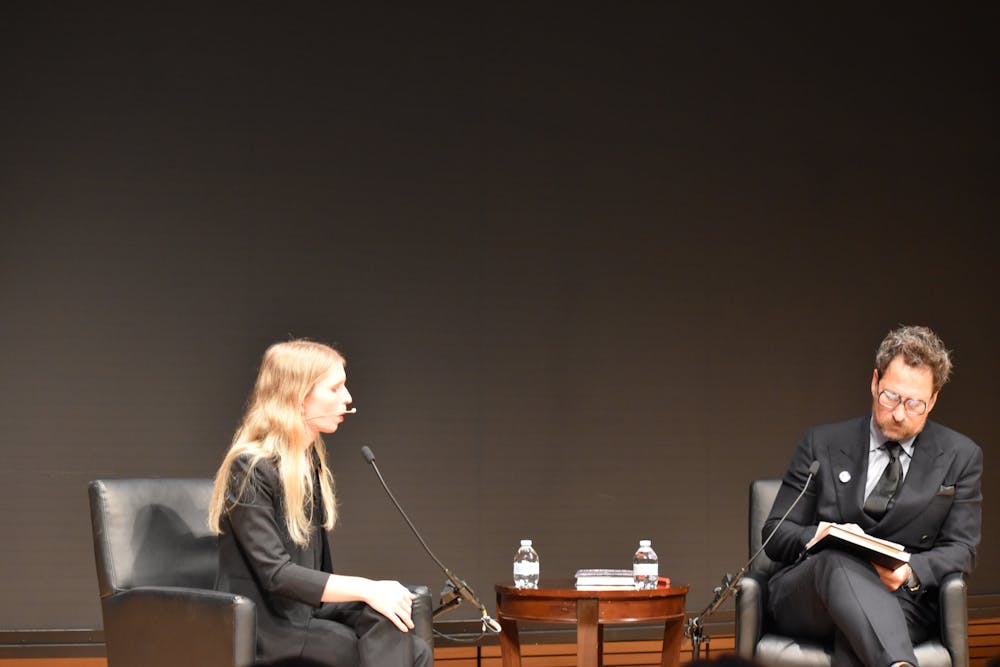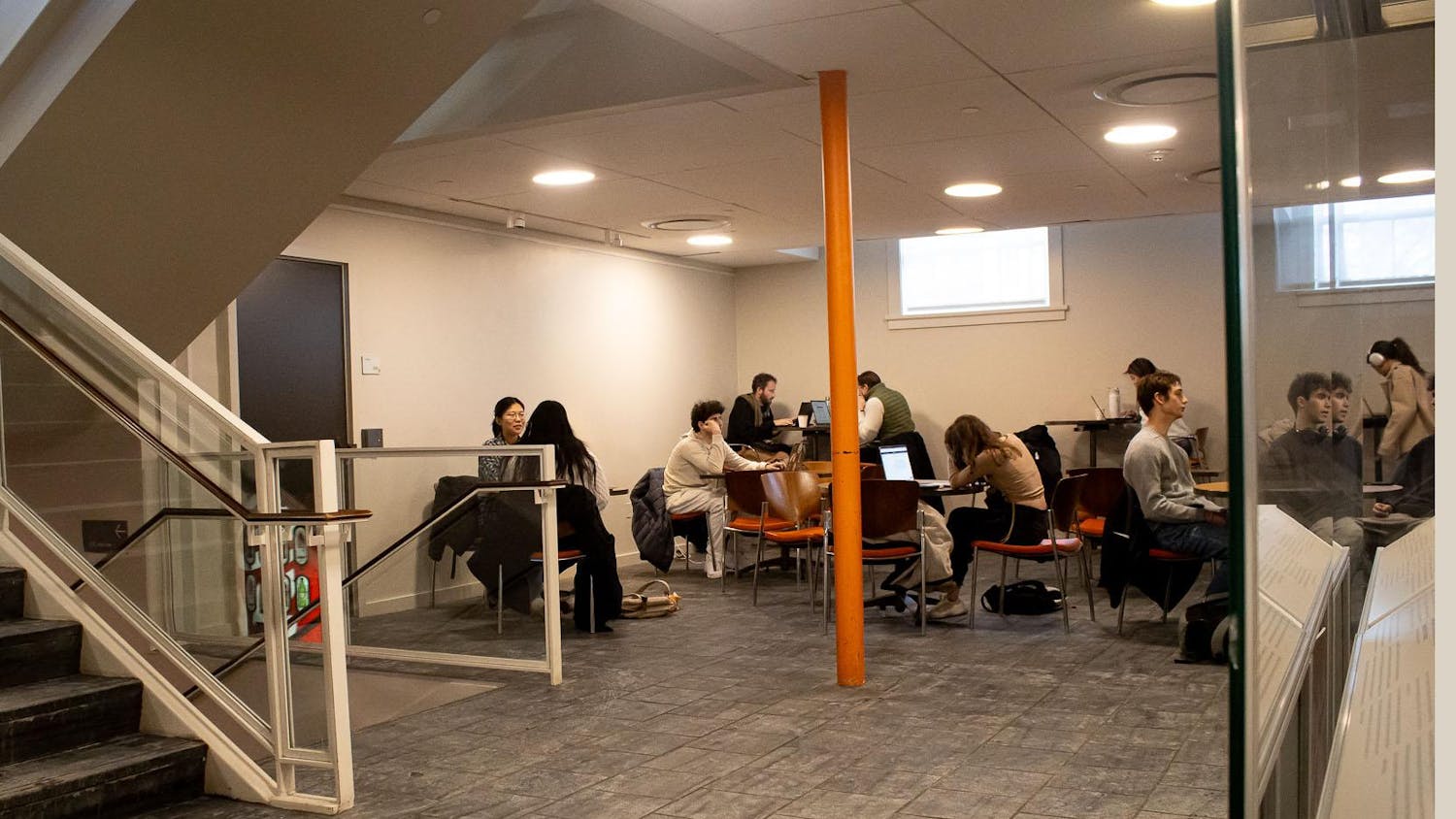With recent rapid advancements in data technology, “what often gets lost is the human element,” said whistleblower and trans activist Chelsea Manning to a packed audience in the Granoff Center Tuesday evening.
“The values we have, the connections we have, are not just data points,” Manning continued. “We have beliefs, we have history, we have emotions, and all of these things are impacted by this technology.”
At the event, entitled “The Future of Privacy and Data,” Manning discussed the social implications of social media and big data, diving into issues of social alienation, political polarization, government abuse of technology and attacks on both abortion access and LGBTQ+ rights. Manning, who is best known for leaking records of American military abuses in Iraq and Afghanistan, drew on her own experiences as a former intelligence analyst for the U.S. military to make the case for greater oversight of Silicon Valley.
The talk was sponsored by Brown War Watch, a campus anti-war activist group, in conjunction with the Pembroke Center, the departments of history and mathematics, the Data Science Initiative, the Cogut Institute for the Humanities and the Center for Philosophy, Politics and Economics.
“We have entered an unprecedented time in which we hand over our information to companies that have no ethical standards,” Manning said. Everything about how we use social media, down to how long we watch certain videos or the way we scroll through our feeds, “can determine your age, your location, what language you speak, what your background is, what your religion is, what your sexual orientation is, what your gender identity is,” she said.
This data boom, which Manning characterized as “information overload,” is not just available to technology companies in Silicon Valley, she said — noting that it extends to civilians as well. For example, when she was a U.S. military intelligence analyst in Iraq in 2010, she had “less information, less access to things in a classified environment with all of these data streams from the U.S. government than I do as a civilian witnessing everything that’s going on in” the Ukraine invasion, she said.
This data boom is creating an increasingly disconnected society, Manning said. “We need to consider the paradox that technology has provided us, in which we are more diverse and more a connected society, and yet we’ve never felt more alienated,” she said.
“I think this is actually a public health problem,” she added. “We have essentially gamified everything into this slot machine world where we get that dopamine hit every single time that keeps us engaged. It keeps us on, and it's sucking the life out of us.”
The lack of ethical standards or regulation in the technology industry also gives governments at home and abroad more tools for repression and social control, Manning said. Many abusive governments are empowered, not weakened, by the rapid spread of information technology, she said.
“We’ve reached the point where we have so much information that’s floating around,” she said. “But now corporations and governments and various institutions have recognized that they’re not able to keep secrets anymore.”
Instead, these entities have turned to “muddying the waters” by spreading disinformation, Manning said. “I think the risk, in the 21st century, is having the bad things be done in plain sight, in the open, and yet have hundreds of people who see that have a different interpretation of it or an alternative version of events.”
In the United States, the unchecked growth of data and surveillance technologies poses a threat to a number of marginalized groups, Manning said. One such threat is racist predictive policing, “in which you are essentially taking an algorithm that you developed … based on historical data that are clearly biased,” she said. “Then you knowingly implement this tool, this technology, in order to maintain your standing in society” by targeting people of color or immigrants, she added.
Government surveillance is also becoming an increasing threat in the wake of the overturn of Roe v. Wade and restrictions on trans healthcare, she said. Activists face “the potentiality of having a massive, well-funded state actor to be able to surveil them, to collect information, to … disrupt their ability to” take action, she said.
To solve these problems, Manning said, those in the technology industry must consider the social implications of the products they are releasing into society. “We have a duty as technologists, not only to ourselves, to hold ourselves to a standard and to hold ourselves accountable, not just to each other but to society at large,” she said.
Manning emphasized the importance of the “human element” in decisions about technology. “We’re humans,” she said. “We’re flawed, we’re scared, we’re overwhelmed. … If we want to create, or even just maintain, the world that we have before everything comes apart, then we have to do something.”





